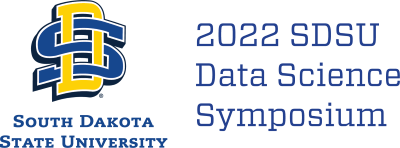Session 3: Understanding the Multi-scale Heterogeneity in Cancer Genomes
Presentation Type
Invited
Track
Other
Abstract
Cancer is an incredibly complex and heterogeneous disease that arises from a person’s own cells. It is responsive to environmental changes and to treatment in particular, which makes it hard to treat effectively. Not only are there over 800 sub-types of cancer, individual cells of a patient's tumor can also vary between each other.
Advances in sequencing and computing technologies have allowed us to generate vast amounts of data from tumor and normal tissues that can help us understand not only the development, growth and spread of cancer in general, but also study the specifics of a particular patient's cancer, down to the granularity of a single cell. Bioinformatics tools help us translate sequencing data into biologically meaningful information. Identifying and understanding the complexity of a patient’s cancer using these methods is a very useful tool in the clinic to make therapeutic choices appropriate for that patient. This talk will introduce the various levels of heterogeneity in cancer genomes, demonstrate examples from a study focused on gastric adenocarcinomas, and discuss the effects this can have for precision medicine approaches.
Start Date
2-8-2022 9:50 AM
End Date
2-8-2022 10:50 AM
Session 3: Understanding the Multi-scale Heterogeneity in Cancer Genomes
Dakota Room 250 A/C
Cancer is an incredibly complex and heterogeneous disease that arises from a person’s own cells. It is responsive to environmental changes and to treatment in particular, which makes it hard to treat effectively. Not only are there over 800 sub-types of cancer, individual cells of a patient's tumor can also vary between each other.
Advances in sequencing and computing technologies have allowed us to generate vast amounts of data from tumor and normal tissues that can help us understand not only the development, growth and spread of cancer in general, but also study the specifics of a particular patient's cancer, down to the granularity of a single cell. Bioinformatics tools help us translate sequencing data into biologically meaningful information. Identifying and understanding the complexity of a patient’s cancer using these methods is a very useful tool in the clinic to make therapeutic choices appropriate for that patient. This talk will introduce the various levels of heterogeneity in cancer genomes, demonstrate examples from a study focused on gastric adenocarcinomas, and discuss the effects this can have for precision medicine approaches.

